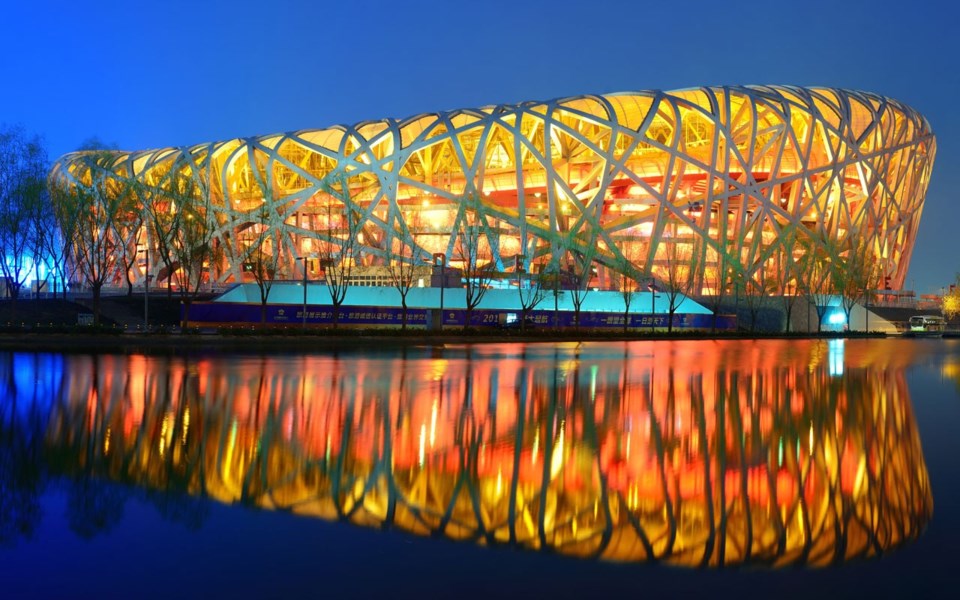It is hard to believe that it's been 10 years since Whistler hosted first the Olympic Games in February of 2010, then the Paralympic Games in March.
Everyone has memories of the event, even those who chose to leave town rather than endure the thousands who came here to compete and celebrate at the biggest sporting event in the world.
I stayed, working every day for weeks as a reporter and generally loving it all. The athletes, organizers, supporters, fans and especially the volunteers I met and interviewed were the best part of the experience for me—along with the amazing public transit! I also decided to embrace it as a family and we took our kids to all the concerts, medal ceremonies and any events we could get to here as well.
In the lead-up to the $7-billion 2010 Games (that figure includes items such as the upgrade to the Sea to Sky Highway and the Canada Line) there was plenty of discussion about whether Whistler, already a No.1 ski resort, needed the exposure of hosting such an expensive and elaborate sporting event.
Those discussions are held by every nation that considers hosting a Games, as they get into the trenches of decision-making.
But it is getting harder and harder to make the pitch successfully to taxpayers (perhaps that's why countries whose leaders aren't answerable to voters are getting to the bid/host stage more often?) as the bill for the event grows and grows.
Tokyo is up next this summer and we are learning that these Games, initially forecast to cost about the same as our event, will likely cost $26 billion.
Beijing spent US$42 billion on hosting in 2008 while Athens spent US$15 billion hosting the 2004 Olympics (taxpayers in Athens will continue to be assessed payments of approximately US$56,635 annually until the debt is paid in full). Sochi's Winter Games cost over US$50 billion!
These concerns came to the forefront in Canada when Calgary in 2018 held a public vote on hosting the 2026 Games. It failed.
"The 2022 (bidding) certainly highlighted the problems we were facing in attracting cities, particularly winter cities," IOC member and former vice-president John Coates said in a Global News article at the time of Calgary's vote while referring to the issues finding a host for the 2022 Winter Games. "We had to do something to address the cost of the games. Increased costs have forced our hand."
Six cities dropped official or potential bids to host the 2022 Winter Olympics with the Winter Games narrowly awarded to Beijing, again.
Said Robert VanWynsberghe, a professor and sustainability expert at the University of British Columbia in the same article, "In combination with the cost, I think it's just become onerous. And now, because they're asking citizens what they think, we're just seeing a large number of cities saying, 'you know we asked people in the community and they said no.'"
In June 2019, the IOC overhauled its bidding process in the hopes that fewer potential hosts would drop out.
The IOC wants cities interested in hosting the Games to hold referendums before submitting official tenders to avoid having to withdraw their candidacy at a later date.
The seven-year period between awarding the Games and hosting the Olympics was also scrapped with the IOC eager to be flexible to fit the timeline to the capabilities of each city.
These changes mean that choosing a location will be more of a conversation between the IOC and potential host cities and less of an election.
The key decision-making body will be a new commission to lead discussions with possible hosts with IOC president Thomas Bach admitting that: "One of the cities we could be talking with could be considered to be so outstanding by this 'future hosts' commission ... that in fact it could be just one candidate."
But it will take more than this. The IOC needs to contribute to the upkeep of athletic venues after the Games are over, and the financial incentives simply need to be greater.
Or perhaps it is time to look seriously at holding the Games events in designated locations already set up as venues?




